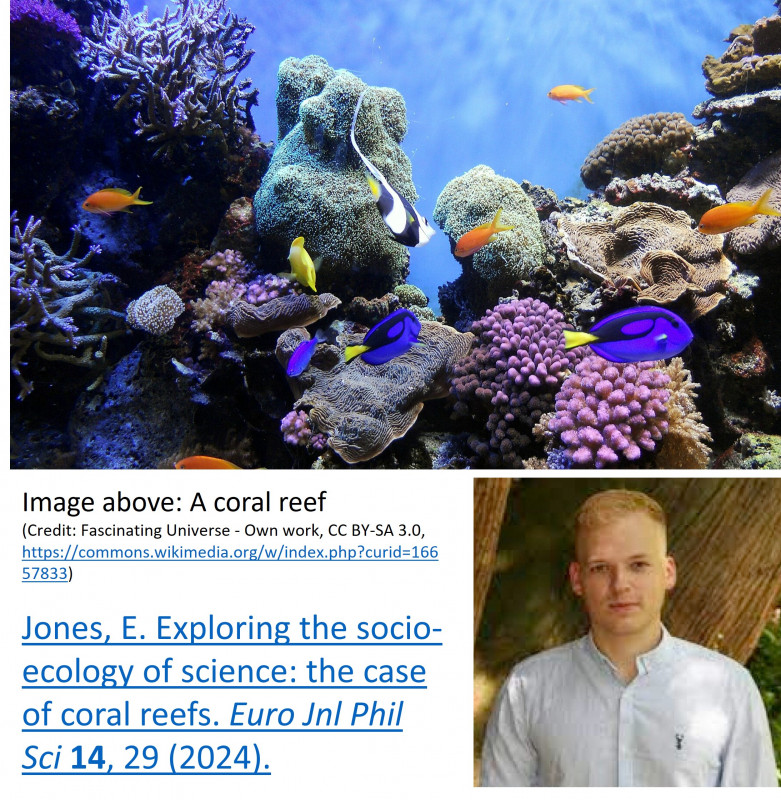News Details

In this new paper, KLI Post-doctoral Fellow Elis Jones argues that scientific activity is literally niche construction. Using data from interviews conducted with coral scientists, Elis examines the socio-ecological dimensions of science, especially how science shapes and is shaped by the living world around it.
This paper stems from Elis’s PhD thesis and from his work done during his previous stay at the KLI as Visiting fellow in 2022. It applies niche construction theory to the activities of coral scientists, and connects that with theories about value in socio-ecological systems (like ecosystem services, intrinsic value, instrumental value).
Elis treats the practice of science as a socio-ecological web of interdependent entities that includes not just the study system but also the laboratories themselves, networks of scientists and reef organisms, and larger institutes and ecosystems they are embedded in. In such a socio-ecological web, when the study system is not under threat, scientists could focus more on pure epistemic activities such as exploratory research. However, when a threat endangers the study system, there is a shift in the focus of scientific activity. In the case or coral reef science, when corals are endangered by climate change, it jeopardizes the field of coral science research along with livelihoods of humans and other organisms that depend on the health of the entire system. In such a context, pure epistemic activities take a backseat, and seemingly pragmatic concerns take the forefront, and the direction of research shifts towards protection and sustaining the coral reef.
The paper concludes with the statement, ‘Scientific activity, especially of the ground-breaking and exploratory kind, requires these certain socio-ecological conditions in order to take place, and if these do not exist, it may cease entirely.’
In Elis’s words, “I show how science – in this case coral science – is often evaluated in terms of its impacts on socio-ecological systems, such as how it shapes reef environments and the benefits they provide to humans and other organisms, alongside more traditional concerns with knowledge production. I argue that changes to the ecosystems that scientists operate in can cause changes to the kind of behaviour which is seen as ‘good science’. In this case, coral scientists are now more explicitly focused on sustaining coral reefs, rather than just producing knowledge about them. If this analysis is right, as other ecosystems come under similar threats, we can expect similar changes in other areas of science.”
Publication: Jones, E. Exploring the socio-ecology of science: the case of coral reefs. Euro Jnl Phil Sci 14, 29 (2024).

